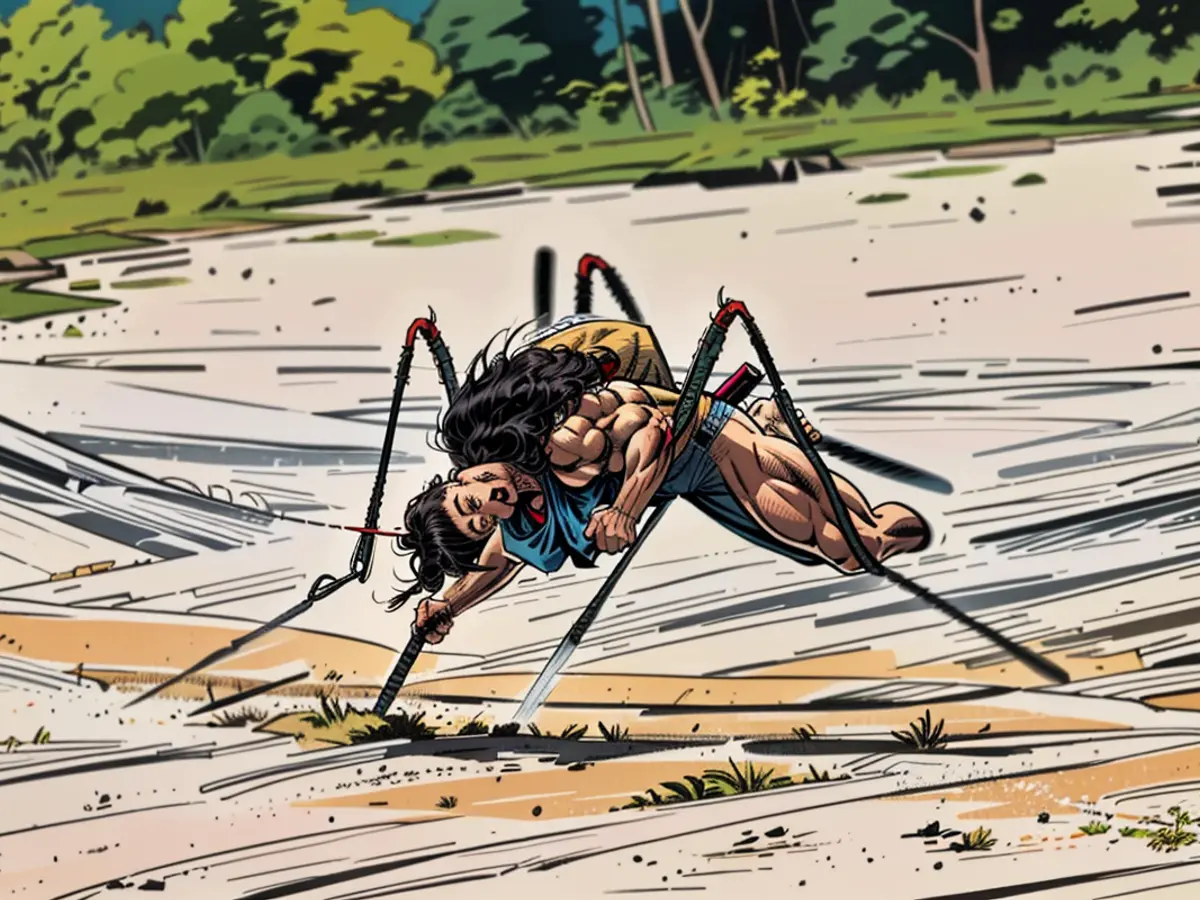After the flood - Mosquito repellent partially sold out
After the flood, the mosquitoes came: In parts of Bavaria, unusually large numbers of bloodsuckers are tormenting people. In retail and pharmacies, mosquito repellent is in short supply, as reported by the corresponding trade associations. Biologist and mosquito expert Doreen Werner does not speak of a mosquito epidemic, but she does not expect a rapid decline in swarm sizes.
In retail outlets in Bavaria, common mosquito repellents were sold out in many shops in the affected areas. "There was a real rush", says Bernd Ohlmann, managing director of the Bavarian Trade Association. "But it's also clear: mosquito repellent is not the new toilet paper. If you don't get it at the drugstore around the corner, then maybe in another shop." In areas like the Five Lakes Region in Upper Bavaria, such peak demands are not new. However, this year it is also affecting other regions.
Pharmacies also affected
In pharmacies, supplies are not always available: "There are the first shortages", says Helen Brugger. She is spokesperson for the Bavarian Pharmacists' Association for the Starnberg region and owner of two businesses in Herrsching. "We are selling more than usual at this time." New orders are still coming in regularly. However, she cannot say how long this will be the case.
According to the dm drugstore website, as of Monday morning, a common mosquito repellent was not available in many stores in Upper Bavaria and Swabia. There were many gaps in Niederbayern and Mittelfranken, but in other regions of Germany not affected by the floods, there were hardly any. Online, the product was generally available. However, it is currently unclear whether there is a direct connection to the floods.
Mosquito swarms often become noticeable in retail later, says Ohlmann. Many people still had remaining stocks of mosquito repellent and went shopping only when they had run out.
"Mosquitoes follow every flood", says Doreen Werner from the Leibniz Center for Agricultural Landscape Research, who leads the federal "Mosquito Atlas". The females lay their eggs at water's edge, she explains. "They know where the water level will rise, but that's still unknown. They have good sensors." If the eggs get wet with the next rain, the mosquito development process will begin. Depending on the temperature, the insects hatch within a few days.
In contrast to other mosquito species, flood mosquitoes have "very persistent landing behavior", says Werner. "If you swat them away with your hand, they start the next attempt immediately. They don't hesitate." Werner's tips: wear closed clothing and avoid breeding sites, such as shrubs. "If you were stung, it's not worth scratching." Through itching, dirt particles and bacteria in the wound could be introduced, which could then become inflamed. "That's what eventually takes us to the doctor. There are no allergies to mosquito bites. We are responsible for ourselves."
Scientifically speaking, there is no epidemic yet.
From a scientific perspective, Werner would not currently speak of an infestation. "It's only 20 bites per minute", she says. "We are literally swarmed by mosquitoes in certain areas, such as breeding sites." However, she does not rule out a plague-like occurrence in isolated areas.
Quick relief is not to be expected: According to Werner, mosquitoes have a lifespan of around four to six weeks. However, this is also temperature and weather dependent. That doesn't necessarily mean that the problem will be solved in a few weeks: "Mosquitoes are clever. They hatch in stages." In addition, with every rain shower, the likelihood increases that more insects will develop from abandoned eggs. In "maximum two to three months", however, there will be relief.
The useful sides of mosquitoes
While many people are annoyed by mosquitoes, they are important for the environment: "For many animals, such as amphibians, fish, or predatory insects, they are an ideal prey", so Werner. Mosquitoes also clean the water and play an important role in pollen transfer from flowers. "They are often so negatively perceived that the good is forgotten."
- In the affected areas of Bavaria, mosquitoes, specifically flood mosquitoes, have become a nuisance after the flood.
- Doreen Werner, a biologist and mosquito expert from Munich, mentioned that while she doesn't expect a rapid decline in swarm sizes, she doesn't foresee a mosquito epidemic.
- Retail outlets in Bavaria, particularly in the Five Lakes Region of Upper Bavaria, have experienced peak demands for mosquito repellents.
- Pharmacies in Starnberg, a region in Bavaria, have reported first shortages of mosquito repellents, with Helen Brugger, a pharmacist, saying they are selling more than usual at this time.
- According to the dm drugstore website, some common mosquito repellents were not available in many stores in Upper Bavaria and Swabia, with gaps in Niederbayern and Mittelfranken, but availability in other regions not affected by the floods.
- Bernd Ohlmann, managing director of the Bavarian Trade Association, mentioned that mosquito repellents are often sold later in retail outlets, as many people still had remaining stocks.
- Doreen Werner suggests wearing closed clothing and avoiding breeding sites, such as shrubs, to prevent mosquito bites and avoid itching, which could introduce dirt particles and bacteria into the wound.
- From a scientific perspective, Werner would not currently speak of an infestation, as there are only 20 mosquito bites per minute in certain areas, although she does not rule out a plague-like occurrence in isolated areas.
- Mosquitoes are important for the environment, as they are a food source for many animals, such as amphibians, fish, and predatory insects, and play a role in water cleaning and pollen transfer.








